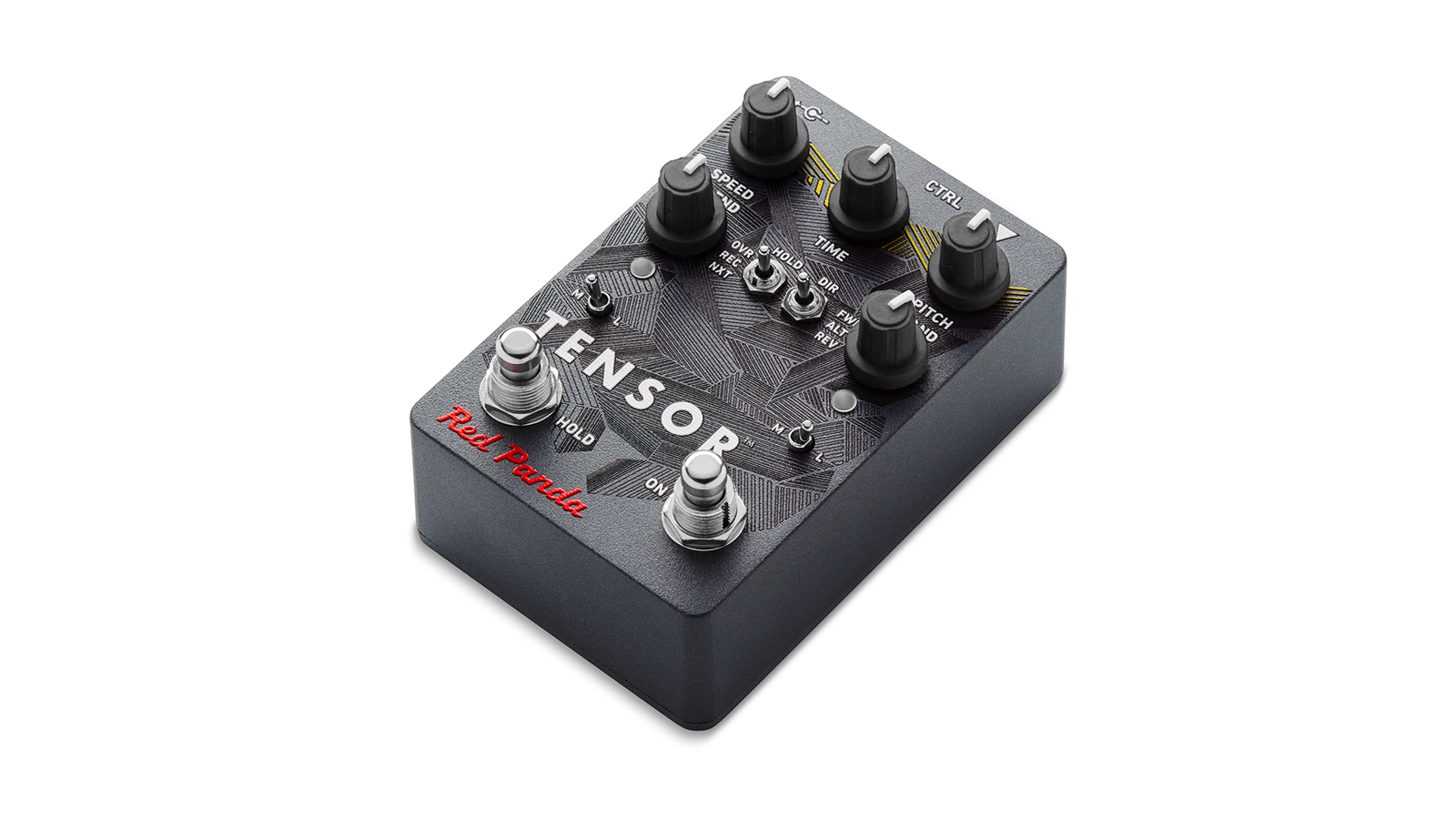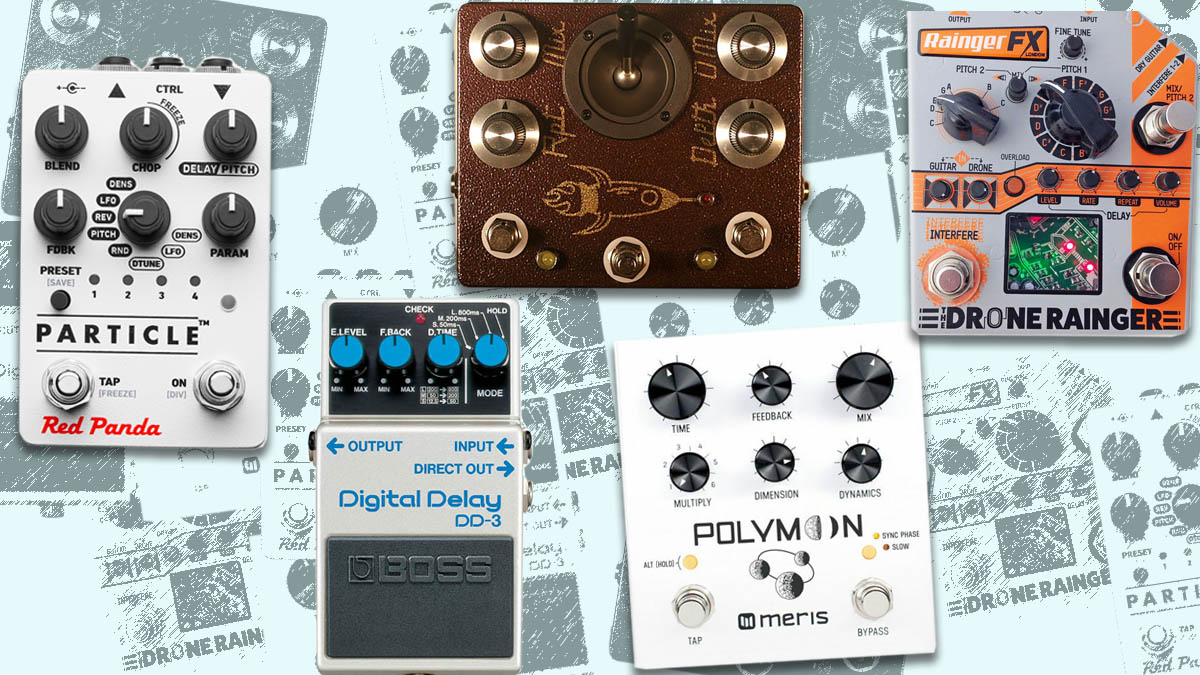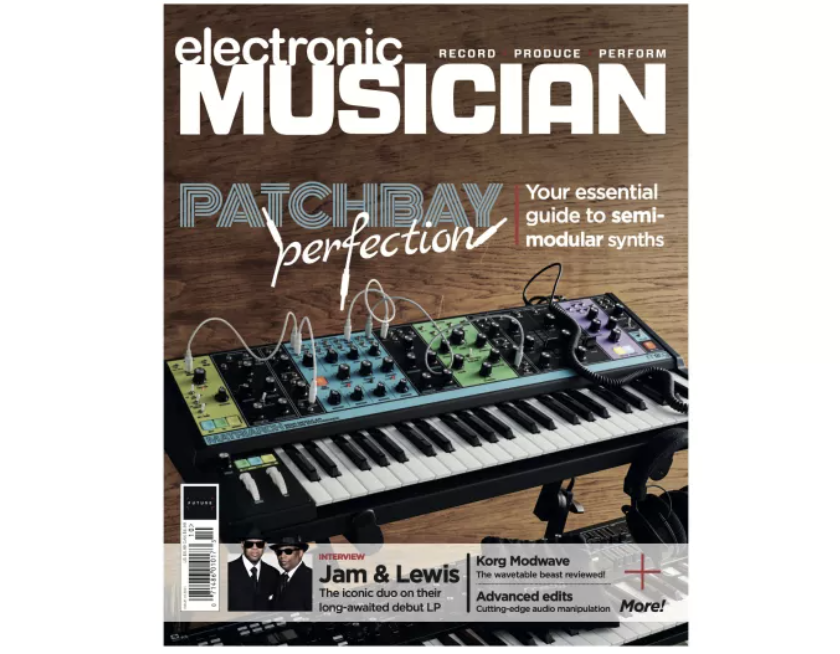Electronic guitar: the joy and inspiration of micro-looping
Discover the creative possibilities of pedals like Red Panda's Tensor

At this point, pretty much every guitarist is aware of looping; you play notes into a recording device that lets you automatically recycle the part over and over ad infinitum or nauseum, depending on your tolerance for repetition.
This is called a loop. Often, you can overdub complimentary parts. In some cases, you can modify the loops within the recording device, playing them faster or slower, or re-pitched up or down. This is the art of looping and, kidding aside, it has certainly changed the face of music. So, how does this differ from micro-looping?
Generally, micro-looping refers to loops of short phrases, rather than typical multi-bar song sections or evolving ambient pads. Micro-looping differs from glitch in using slightly longer loops that create rhythm and/or harmony rather than more of a textural/noise effect.

Obviously you can turn any looper pedal into a micro-looper by recording a short length of audio, but these days pedals like Hexe’s Revolver, Chase Bliss’ Blooper and Mood, and Red Panda’s Tensor are dedicated mainly to this process, offering onboard methods of mangling the mini-loop in ways that longer loopers lack.
For this column we will focus on the Tensor, as it requires a much smaller entrance fee to the micro-looping experience than the others, while still offering many of the features that make this process so creative.
The Tensor’s Tape knob lets you change the direction of the loop from reverse, to stop, to forward, like manipulating a reel of tape. This changes the pitch in a smooth fashion and can be controlled with an expression pedal. Recording a loop while rubbing my hand against the strings of a distorted guitar, we could then twiddle this knob for some cool vinyl scratching effects.
Using the Pitch knob to change the tuning, we could play a loop like an instrument by moving it in musical increments from -2 to +2 octaves. Rotating the Random knob clockwise changed the amount and type of randomization.
Get the MusicRadar Newsletter
Want all the hottest music and gear news, reviews, deals, features and more, direct to your inbox? Sign up here.

Pioneers of looping: 9 guitarists who made the looper pedal a 21st-century pedalboard staple
At lower settings it gave me occasional stutters; randomly repeated short segments showed up when set in the middle; and shuffled slices of sound appeared at maximum setting. Speed and pitch were randomly changed based on my knob settings. Randomizing the pitch afforded me an unpredictable, improvising partner to whom I could respond — especially welcome in these times of isolation.
The footswitches can be set for latch or momentary. A toggle lets you either record a new loop with each press of the hold footswitch, overdub on an existing loop, or, in Next mode, record a new loop every time you play, without having to step on a footswitch.
With the Tensor, I could still do classic ambient overdubs of long tones, a la Fripp, but more interesting were random clusters of notes that, when put through reverbs and delays, created fresh sounding pads that would be difficult or impossible to render any other way.
There is so much more that once you get into this type of micro-looping it is hard to stop as the ideas come thick and fast. Pick up one of these pedals and discover a new world of inspiration.


Electronic Musician magazine is the ultimate resource for musicians who want to make better music, in the studio or onstage. In each and every issue it surveys all aspects of music production - performance, recording, and technology, from studio to stage and offers product news and reviews on the latest equipment and services. Plus, get in-depth tips & techniques, gear reviews, and insights from today’s top artists!
“A fully playable electro-mechanical synth voice that tracks the pitch of your playing in real time”: Gamechanger Audio unveils the Motor Pedal – a real synth pedal with a “multi-modal gas pedal”
“Instead of labouring over a perfect recreation, we decided to make an expanded counterpart”: Chase Bliss teams up with Mike Piera for Analog Man collab based on the legendary King Of Tone










